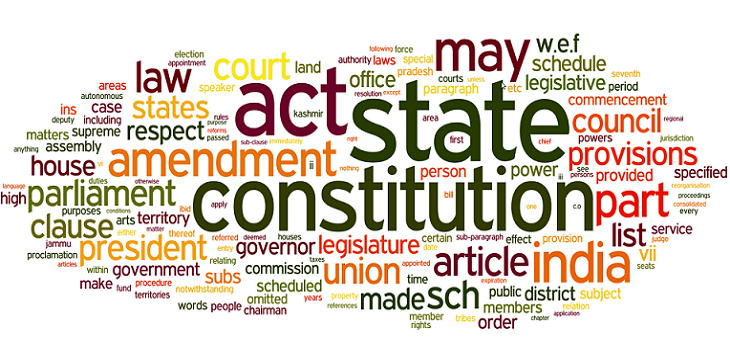“The State shall not deny to any person equality before the law or the equal protection of the laws within the territory of India.” Article 15 secures the citizens from every sort of discrimination by the State, on the grounds of religion, race, caste, sex, or place of birth or any of them.
(संविधान के आर्टिकल 14 से लेकर आर्टिकल 18 तक में देश के सभी नागरिकों को समता यानी समानता का मौलिक अधिकार देने की बात कही गई है।भारतीय संविधान में सभी नागरिकों को बिना किसी भेदभाव के मौलिक अधिकार दिये गए हैं। इन अधिकारों का उद्देश्य है कि हर नागरिक सम्मान के साथ अपना जीवन जी सके और किसी के साथ किसी आधार पर भेदभाव न हो।)
Article 15
The Article declares prohibition of discrimination on grounds of religion, race, caste, sex or place of birth.
Article 15 (1): The state shall not discriminate against any citizen on the above grounds.
Article 15 (2): No citizen shall not discriminate or cause restriction, on the above five grounds, to any citizen with regard to:
- access to parks, hotels, shops, public restaurants and places of public entertainment
- the use of tanks, bathing ghats, wells, roads and places of public resort dedicated to the use of the general public
That means, Article 15 (1) prohibits the state, while Article 15(2) prohibits both state and the citizens to discriminate against any person on the above mentioned five grounds. However, the state may take special care towards women, children and socially and educationally backward classes.
Article 15 (3): It states that the State may make any special provision for women and children.
Article 15 (4): It states that the State can make any special provision for the advancement of any socially and educationally backward classes of citizens including Scheduled Castes and the Scheduled Tribes.
Discrimination means unfavourable distinction or negative discrimination, which is prohibited. From Article 15 (3) and (4), we can understand that the constitution allowed favourable distinction or positive discrimination in favour of women and children.
For example, the Uniongovernment enacted many acts, say, the Maternity Benefit (Amendment) Act 2017 and Child labour (Prohibition & Regulation) Act for the welfare and development of women and children.
Important Judgements on Article 15
Champakam Dorai Rajan v. State of Madras, 1951
In the case, the Madras state reserved some seats for the backward classes of the society but the Supreme court declares it as a violation of article 15 of the constitution.
1st Constitutional Amendment Act
The amendment says that state can provide any reservation for the educationally and socially backward sections and hence it would not be considered as the violation of the article.
However, a question arises as to how to check the backwardness.
M.R. Balaji v. State of Mysore, 1962
In this case, the state provided reservations, which went up to 68%, which was declared to be unconstitutional.
The court made the following declarations
- Backwardness must be both social and educational
- Caste cannot be sole determinant to check backwardness, poverty and occupational
- For the first time, the court defined 50% ceiling limit for reservations.
- Ruled out the further classification of backward classes into backward and more backward classes
Indira Sawhney v. Union of India
The court, in this case, reversed the M.R. Balaji case judgement as under:
- Caste can be the sole determinant in judging backwardness
- Validated further classification of backward classes into backward and more backward classes
93rd Amendment
This amendment inserted Article 15 (5), which says that the State can make special provisions relating to the admission of socially and educationally backward classes to educational institutions including private educational institutions, whether aided or unaided.
T.M.Pai Foundation v. State of Karnataka, 2003
The court held that the state has discretionary powers in relation to Article 15 (5).
.
You Can Follow on Youtube – Score Better
Also, Read More Articles on Indian Polity
Read More Articles on Current Affairs
Join Us on Telegram for More Update
.
